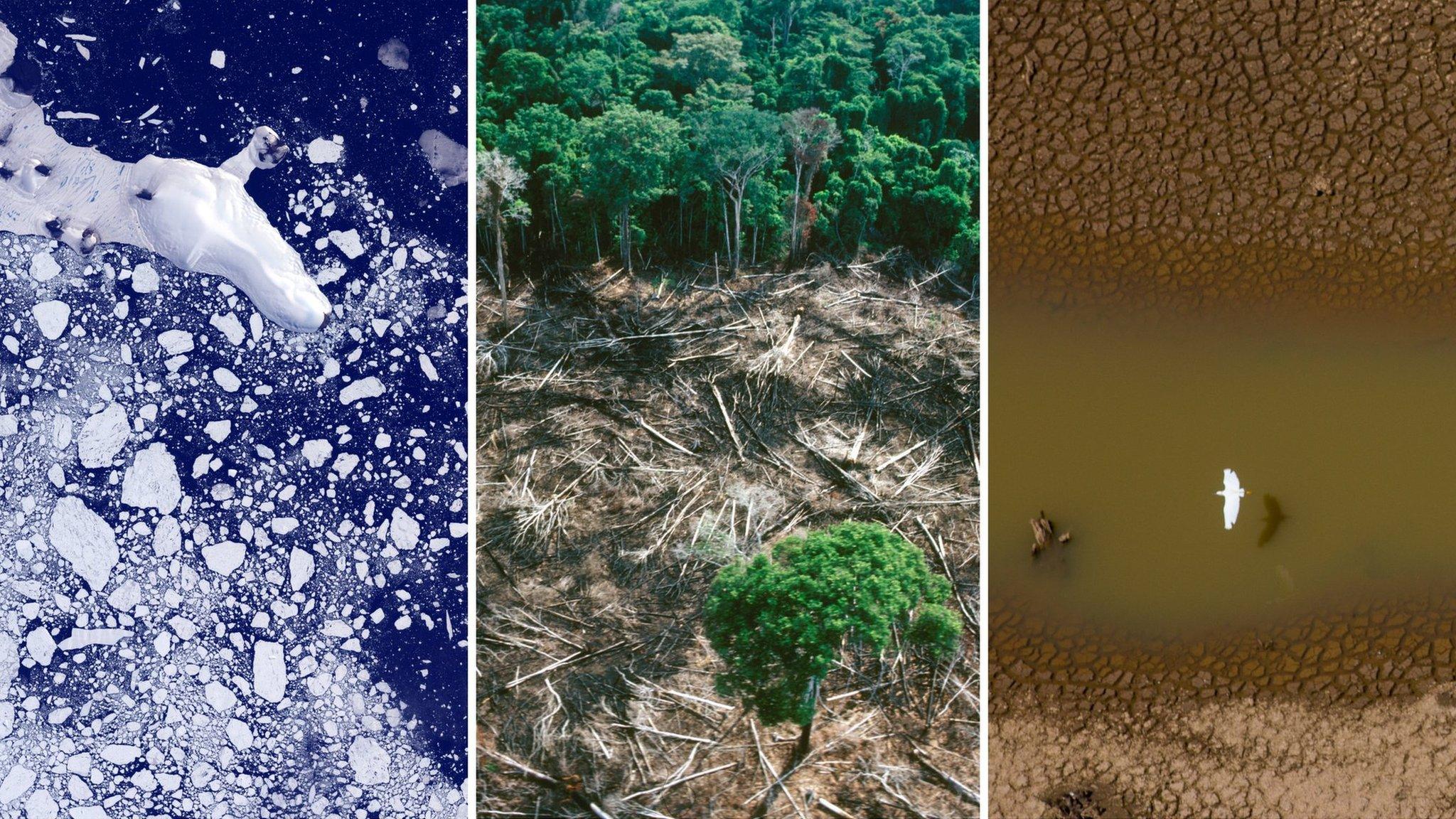Climate change: United Nations's summit to take place in New York
- Published
- comments
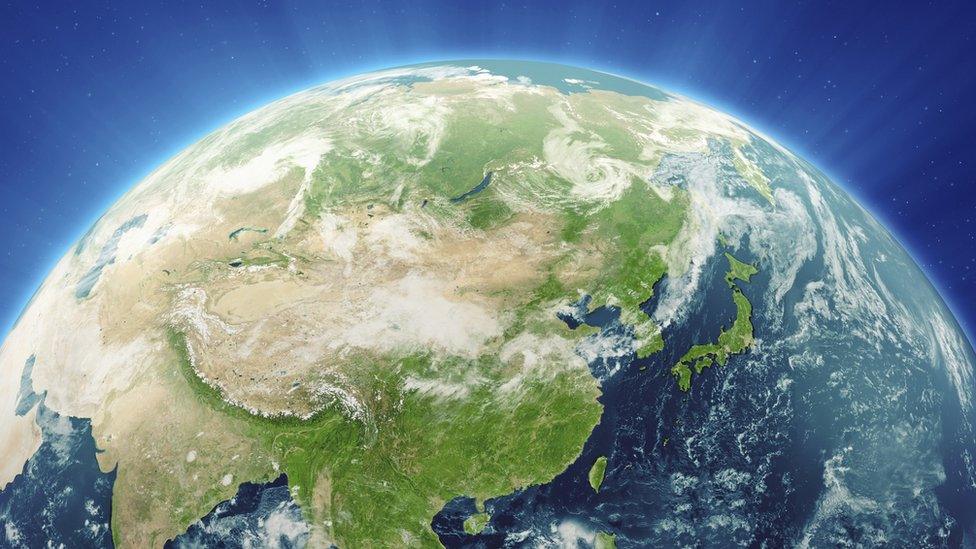
On Monday, world leaders are coming together to talk about how to tackle climate change at the United Nations' climate action summit.
UK Prime Minister Boris Johnson will be there, along with French President Emmanuel Macron and Chancellor of Germany Angela Merkel.
Mr Johnson has said he'll be raising three "crucial issues" at the meeting.
These include "how science and new technologies can help the world deal with climate change and the threats to biodiversity".
Antonio Guterres, who is secretary general of the UN, has told those attending that they shouldn't come simply with fancy speeches, but real ideas about what countries around the world can do to tackle the problems facing the planet.
BBC reporter Nada Tawfik told Newsround more about what we can expect from the meeting. (If you can't see the video below, then click here.)
WATCH: What's happening at the United Nation's Climate Action summit?
But it's not just those in power around the world who will be attending the event.
Teen activist Greta Thunberg will be speaking at the summit to put pressure on the leaders to take more action.
At the end of August, she sailed across the Atlantic to make sure she could be there.
Greta had some strong words for politicians in the US when she spoke to the Senate earlier this month.
The UN summit comes after millions of people around the world protested on Friday as part of a global climate change strike.
What is the Global Climate Strike?
A huge global protest is taking place at the moment in countries all across the world.
The strike, which is lasting from 20 to 27 September, aims to encourage world leaders to do more to tackle the issue of climate change.
The event's website explains: "In over 150 countries, people are stepping up to support young climate strikers and demand an end to the age of fossil fuels. The climate crisis won't wait, so neither will we."
In the UK, big events have been held in major cities and towns, and lots of children have missed school to attend them.
Newsround went to marches in both Manchester and Brighton on Friday 20 September to speak to young protesters about why they felt it was important to do this.
Further protests are planned for Friday 27 September.
WATCH: 'It's important for us to miss school'
The events last Friday were not the first time that young people have got involved in protests about climate change - and the fact that they take place on Friday is also significant.
In August last year, Greta Thunberg skipped school on a Friday (against her school's wishes) to protest about climate change.
In the months since, she has inspired a movement called #FridaysForFuture, encouraging other young people to do the same to show world leaders that more needs to be done.
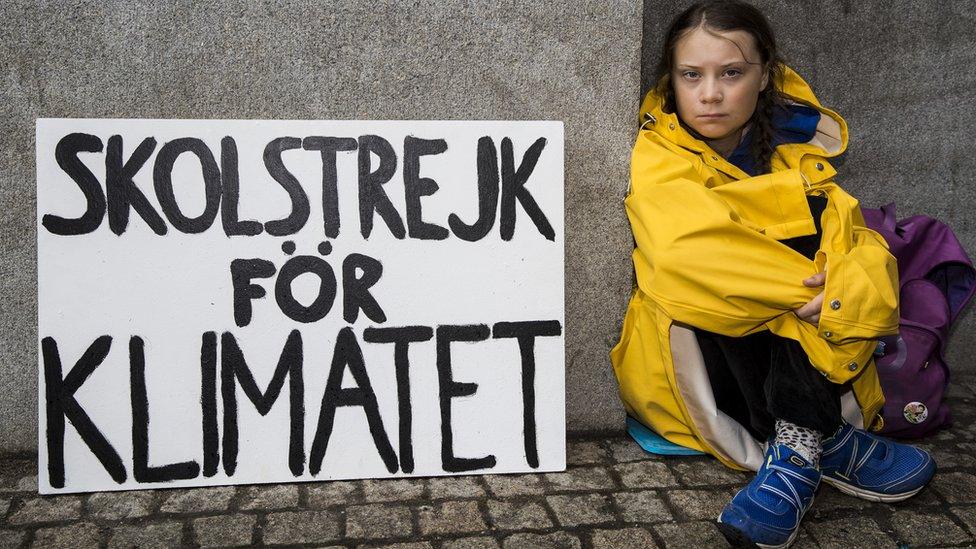
Greta Thunberg's actions have inspired thousands of students all over the world to protest about climate change - her sign reads "school strike for climate"
In March 2019, Theresa May - who was prime minister at the time - spoke out against young people taking action like this. She said that student protesters miss out on important learning that can help them "develop into the top scientists, engineers and advocates that we need to help tackle this problem".
Should you be allowed to miss school to protest about climate change?
WATCH: 'We're in mourning for all the animals and places we've lost'
- Published23 September 2019
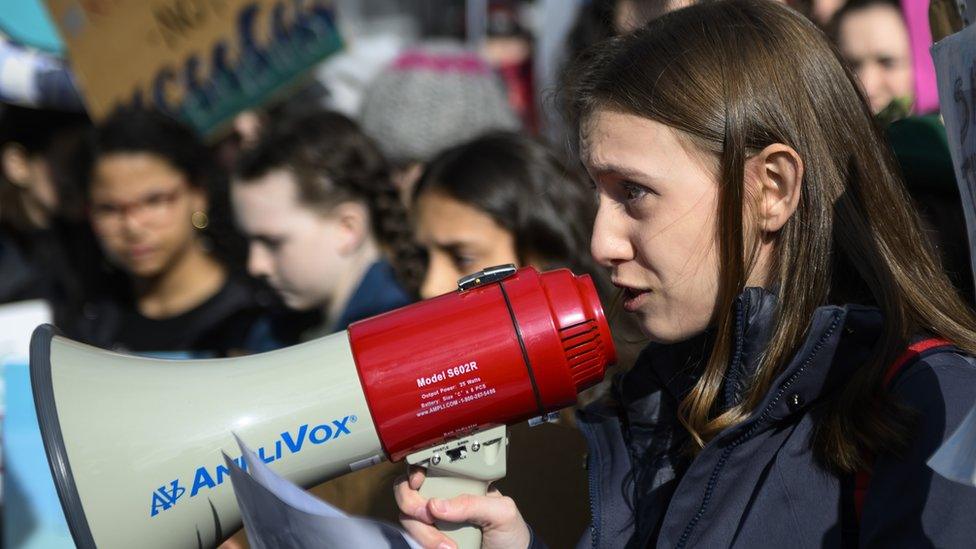
- Published22 April 2019
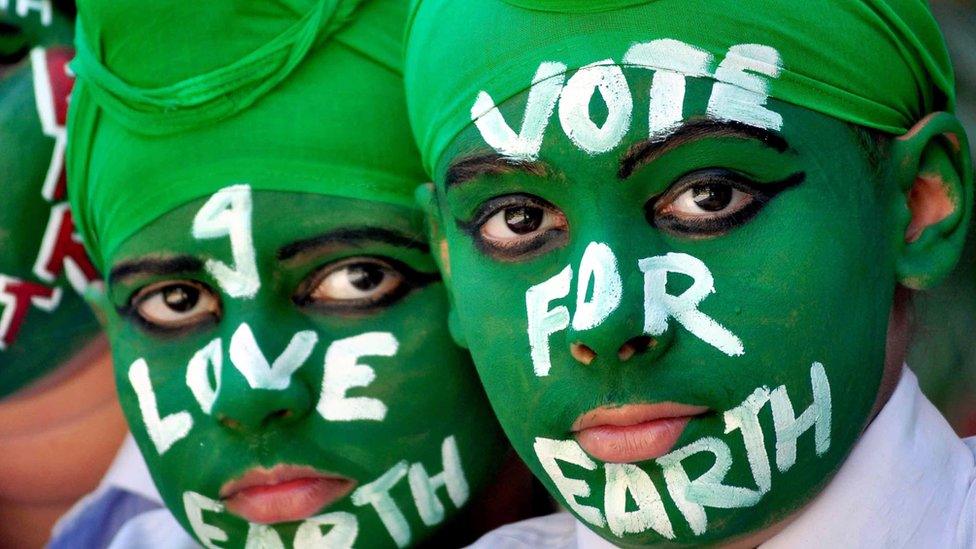
- Published20 January 2020
